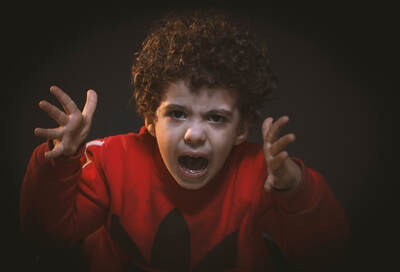 It’s not easy to reign yourself in while in the grips of anger. This is particularly true for children, whose brains—and self-control abilities—are still developing. The answer? Instead of punishment, try rehearsal. (Tweet it!) Lisa Feldman Barrett, a psychologist at Northeastern University who studies how emotions work, says there's a big misconception that you can effortlessly stop yourself when you're already mad. But, she adds, "if you practice cultivating a different emotion or a different response when you're calm and peaceful, you have a better chance of managing your anger in those hot-button moments." The anthropologist, Jean Briggs, lived for a time in the Canadian Arctic with the Inuit people, known for valuing gentleness and even-temperedness. Briggs observed how this value was cultivated in that culture. When an Inuit child acted in anger, perhaps hitting someone or throwing a tantrum, there was no scolding, punishment, or time outs. Instead, the parents waited for a tranquil moment and put on a little drama. The parent would reenact what happened when the child misbehaved, including the consequences of that behavior. During the drama, the parent always kept a light, playful tone. Within the context of the play, the child had to think what to do; if they chose aggressive behavior the parent did not reprimand, but simply acted out the consequences. Myna Ishulutak, a language teacher and filmmaker in Iqaluit, Canada, who grew up with this system, says it “teaches kids to keep their cool.” Will this approach work in other cultures and settings? Laura Markham, a New York City psychologist who specializes in peaceful approaches to disciplining, recommends a similar strategy: Wait until everyone is calm and then go back over with the child what happened. "That develops cognitive capacity. And it develops self-control and self-regulation," she says. How do you respond to angry outbursts in the children you know? Do you ever review them in a calmer moment? To join the conversation, click "comments" above. If you would like to learn more about creating a habit around masterful communication, check out our online learning programs.
0 Comments
Your comment will be posted after it is approved.
Leave a Reply. |
Archives
July 2024
Categories
All
|
|
Glaser & Associates, Inc.
Executive Offices 1740 Craigmont Avenue, Eugene, OR 97405 541-343-7575 | 800-980-0321 [email protected] |
© 2019 Glaser & Associates. All Rights Reserved.


 RSS Feed
RSS Feed